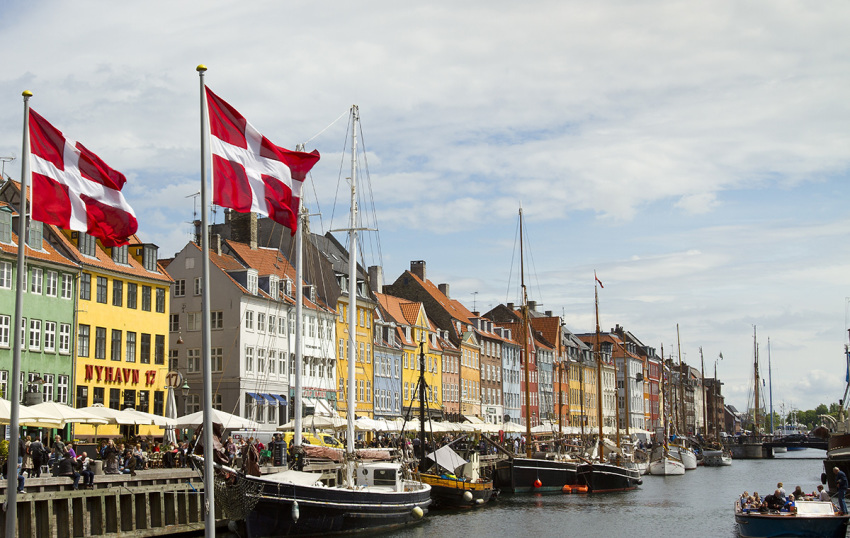USCIRF denounces Denmark's 'blasphemy law,' warns against suppression of human rights

A religious freedom advocacy organization that works directly with the United States government is expressing concern about a recently passed measure in Denmark that it classifies as a blasphemy law, warning that it is incompatible with a democratic society and contrary to international law.
The United States Commission on International Religious Freedom released a statement condemning the Danish Parliament’s Dec. 7 vote amending Denmark’s Criminal Code to include a “prohibition of inappropriate processing of writings with significant religious significance for a recognized religious community.” The measure passed with 94 votes in favor and 77 votes against it.
The amendment would criminalize “inappropriate treatment of a text that has a significant religious importance to a recognized religious community, or an object, that appears to be such a text.”
The bill points to “recent Quran burnings” in the country and a resulting “terrorist threat” as the reason why the changes to the Criminal Code were necessary. Violators of the new law could find themselves subject to a fine or imprisonment of up to two years.
USCIRF, which identifies itself as “an independent, bipartisan federal government entity established by the U.S. Congress to monitor, analyze, and report on religious freedom abroad” that “makes foreign policy recommendations to the President, the Secretary of State, and Congress intended to deter religious persecution and promote freedom of religion and belief,” characterized the measure as a blasphemy law.
The agency defines blasphemy as “the act of insulting or showing contempt or lack of reverence for God or sacred things.” Noting that “blasphemy laws punish expressions or acts deemed blasphemous, defamatory of religions, or contemptuous of religion or religious symbols, figures, or feelings,” USCIRF insisted that “such laws are inconsistent with human rights law, which protects the rights of individuals, but not religious feelings, figures, or symbols from behavior or speech considered blasphemous.”
“USCIRF condemns the burning of religious texts or other objects of religious importance — such as the Qur’an, the Bible, the Torah, the Vedas, and the Tripitaka (Pali Canon) — as deeply uncivil and disrespectful,” said USCIRF Commissioner David Curry. “Criminalizing blasphemy is the wrong approach and not effective in addressing either security concerns or the underlying hatred experienced by religious communities.”
Curry predicted that “this amendment will only serve to propagate harmful stereotypes that could worsen the situation of religious minorities in Denmark.” USCIRF Commissioner Stephen Schneck offered a similar analysis of the amendment to Denmark’s Criminal Code, citing it as an example of how “governments suppress human rights protected under international law in pursuit of national security concerns.”
“Denmark, as a democracy, should not compromise fundamental rights to manage such aims,” Schneck added. “The Danish government must instead work with communities to address religiously-motivated hatred and intolerance, and support freedom of religion or belief.”
As USCIRF noted, the amendment to the Danish Penal Code comes six years after the country’s Parliament repealed a blasphemy provision dating back more than 100 years. A factsheet compiled by the agency reveals that blasphemy laws are not uncommon in Europe. Specifically, Andorra, Austria, Finland, Germany, Italy, Lichtenstein, Moldova, Monaco, Montenegro, Poland, Portugal, Russia, San Marino, Spain, Switzerland and Ukraine each have blasphemy laws.
For its part, the Danish Parliament rejects the accusation that the change to the country’s penal code runs afoul of its obligations under international law, Article 10 of the European Convention on Human Rights in particular. The bill states that “the protection of freedom of expression under Article 10 is not absolute.”
“Freedom of expression can be interfered with if the intervention is prescribed by law and is necessary in a democratic community in the interests of national security, territorial integrity or public safety, to prevent disorder or crime, to protect health or morals, to protect the good name and reputation of the rights of others, to prevent the dissemination of confidential information or to ensure the authority and impartiality of the judiciary.”
Before the implementation of the changes to the Danish Penal Code to include prohibitions on “inappropriate treatment” of religious texts, existing Danish law declares that “anyone who publicly insults a foreign nation, a foreign state, its flag, or other recognized national emblem or the flag of the United Nations or the Council of Europe is punished with a fine or up to two years in prison.
Ryan Foley is a reporter for The Christian Post. He can be reached at: ryan.foley@christianpost.com



























